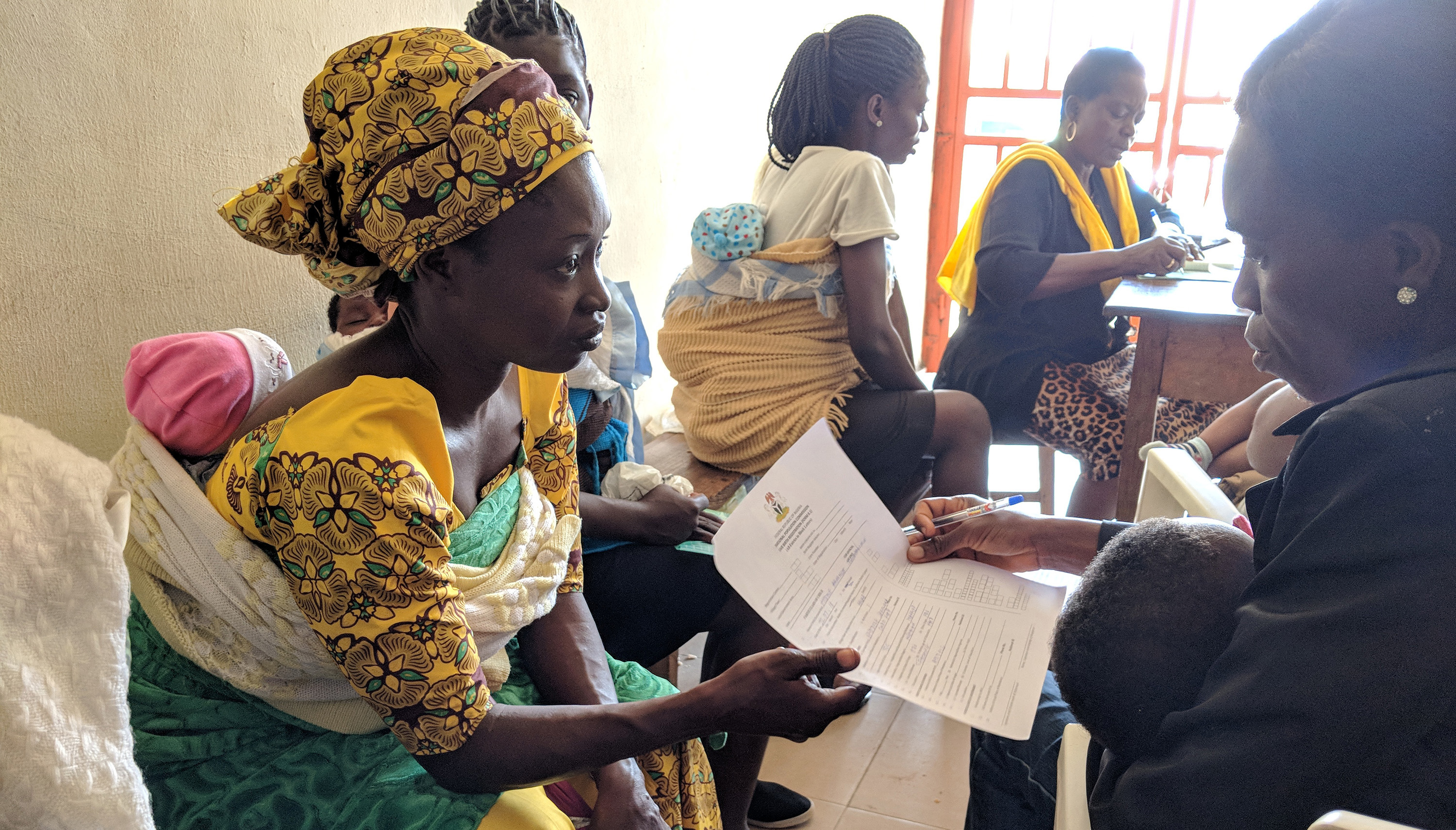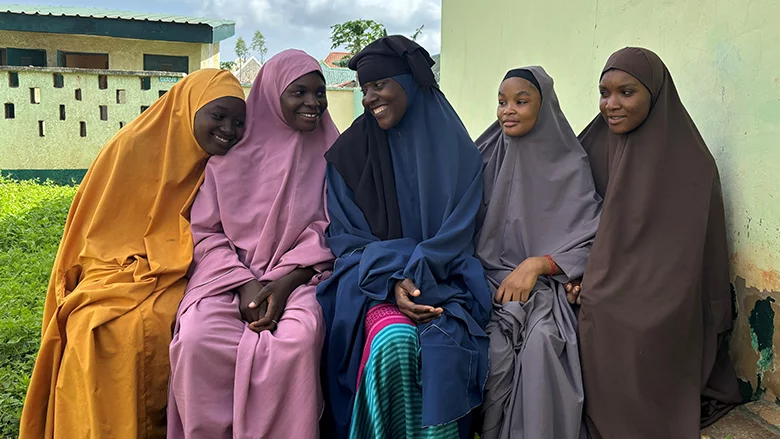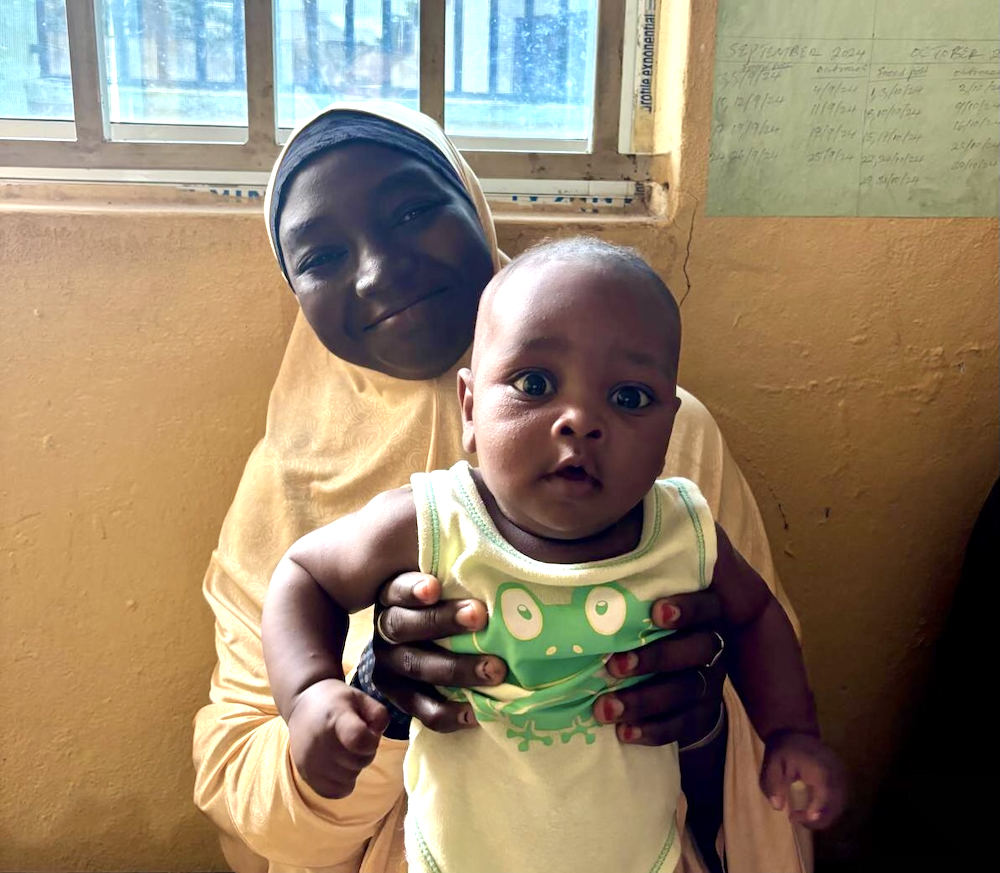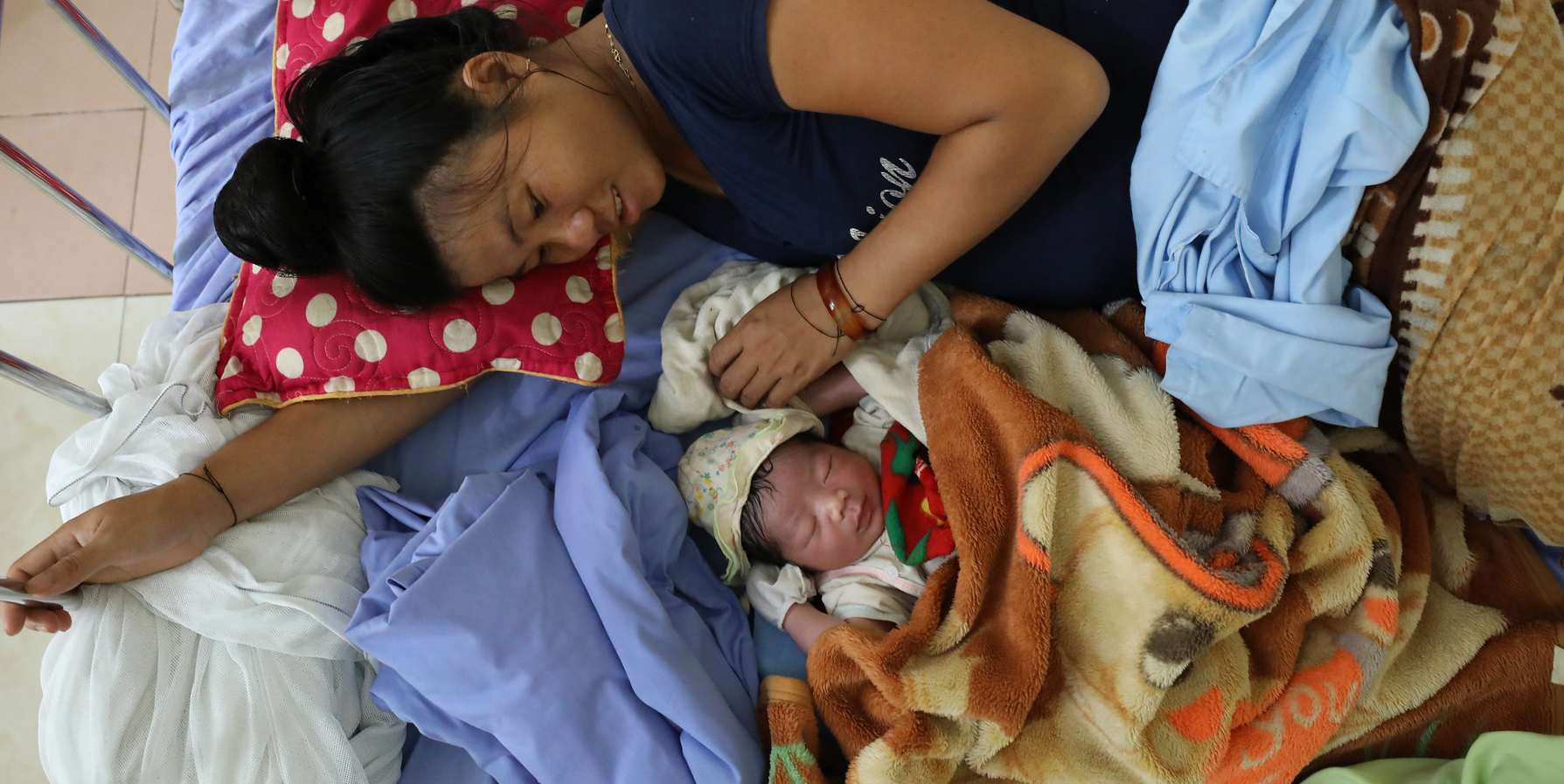Civil Registration and Vital Statistics
Civil Registration and Vital Statistics (CRVS) systems form one of the foundations of resilient health systems and fair societies. With legal documentation, millions of women and children can obtain health coverage and access education, along with other social benefits. Strong CRVS systems also enable faster and more reliable data to help countries understand trends in fertility and mortality, populations at risk, and develop strategies to better target service delivery.
Supporting a Country-Led Approach
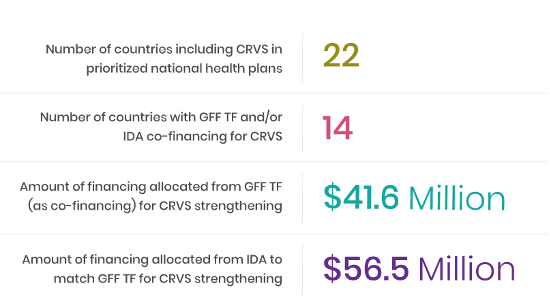
The GFF supports partner countries with policy reforms to strengthen CRVS and establish stronger links to health systems. Focus is placed on modernization and building electronic systems and reforms to expand CRVS registration. The GFF also promotes equitable and gender responsive CRVS systems and the use of CRVS data for decision making — while advocating for the allocation of more resources to CRVS.
Results
Several GFF partner countries have improved their CRVS systems by reforming policies to expand registration service points, transitioning to electronic systems, training health officials, and raising community awareness about the importance of CRVS.
For example, in Liberia, the number of hospitals and health centers with birth registration services increased from 65 to 82 percent and from 13 to 17 percent respectively. As a result, births registered increased 27 percent over three years (2019–21).
Spotlight on Kenya: Building Resilient and Modern CRVS Systems
Kenya shows how a strong government commitment and support from partners help improve CRVS systems. In 2018, Kenya’s birth and death registration rates stood at only 68 percent and 46 percent respectively. This was the result of several challenges such as inadequate investment in CRVS, long distances to registration centers, limited capacity and skills for registering births and deaths, inadequate monitoring and evaluation, and insufficient compilation and dissemination of data.
With support from the GFF and building on the existing CRVS system, Kenya’s government set clear priorities, focusing on a series of reforms to strengthen the system, such as piloting mobile registration offices and strengthening the capacity of registration agents. These reforms were supported by a US$1.2 million GFF grant linked to the World Bank-financed Transforming Health Systems for Universal Care project.
As part of the project, Kenya adopted a system whereby CRVS providers get paid based on annual increases in the birth registration rate. Local civil registration offices and county governments conducted regular monitoring and supervision and civil registration officers helped to better capture and report quality data. Medical practitioners and coders were trained in cause-of-death certification while training manuals and trackers were updated to capture deaths.
As a result of this transformative effort, the CRVS system is now able to better record births and deaths, improve the collection of registration records and submission of returns, and provide better-quality data. Since 2018, there have been notable increases in birth registration, reaching 87 percent in 2021.
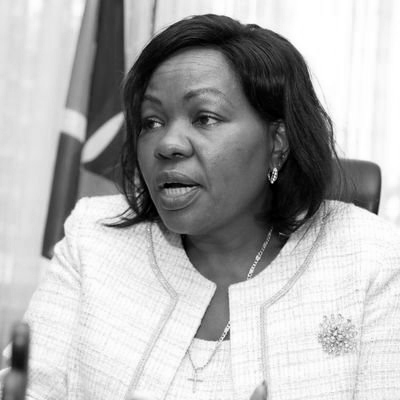
“Thanks to the government’s leadership and support from partners like the GFF, we have made sweeping reforms to CRVS and increased birth registration significantly. Strengthening CRVS systems aligns with our overall vision to build health system resilience and ensure all women and children can access health and other benefits.” —Janet Mucheru, Director of Civil Registration Services, Kenya.
